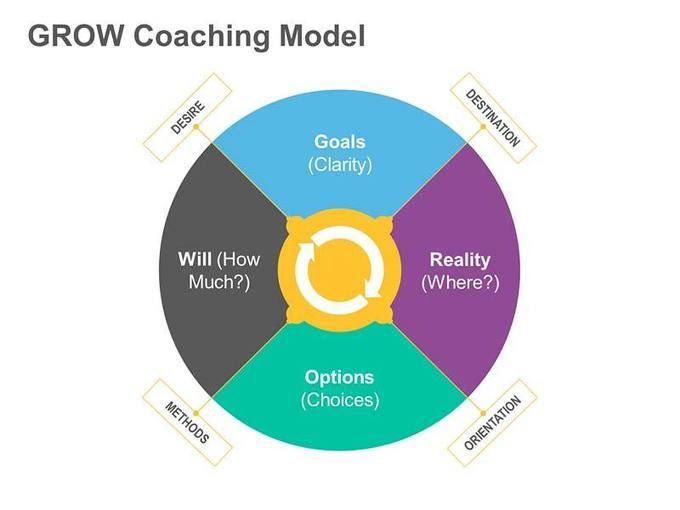Voice over coaching can help you develop your voice over skills. However, the real question is when is the right time to use a coach, if at all? In this article, we’ll help you to understand more about voice over coaching so you can decide if it’s right for you.
Table of Contents – Voice Over Coaching
In this article, we’ll take a closer look at the process of voice over coaching. We will cover the following:
What Is Voice Over Coaching?.
Coaching vs Mentoring.
What Is the Role Of The Voice Over Coach.
How To Find Voice Coaches and Get The Best Out Of Them.
When To Use Voice Over Coaching.
What Is Voice Over Coaching?

First of all, we will help you to understand more about voice over coaching: What it is and what makes it different from mentoring. Although people have some ideas about coaching, opinions on it and how it is practised vary. If you understand what a good coach does, you will be able to decide which coach to choose.
Early in the 90’s, coaching wasn’t seen as that important. More recently though the profession of coaching has grown and is now an established part of professional development in all areas of work and life.
Yet, there remains a considerable amount of confusion over the term and practice.
To help with this we have pulled out some good definitions:
“The art of facilitating the performance, learning and development of another” (Downey, 2003).
“A collaborative, solution focused, result-orientated and systematic process in which the coach facilitates the enhancement of work performance, life experience, self-directed learning and person growth of the coachee.” (Association for Coaching, 2018).
“Coaching is unlocking a person’s potential to maximise their own performance. It is helping them to learn rather than teaching them.”(Whitmore, 2009).
“Coaching is a method of work-related learning that relies primarily on one-to-one conversations.” (Association of Coaching, 2018).
“Coaching aims to produce optimal performance and improvement at work. It focuses on specific skills and goals, although it may also have an impact on an individual’s personal attributes such as social interaction or confidence. The process typically lasts for a defined period of time or forms the basis of an on-going management style.” (CIPD, 2018).
As can be seen from these definitions, coaching is part art and part science. Coaching focuses on helping people to develop their capabilities. As an example, a sports coach is focused on maximising the potential of an athlete in their particular field of sport. The coach will do this in cycles. Each cycle is often a short-term process with a specific goal.
In essence, a good coach draws upon a whole range of skills, from a range of disciplines. For instance, they include educational science, philosophy, psychology, positive psychology and neuroscience. Unfortunately, it’s easy days for people to call themselves a coach. As a result, many ‘coaches’ have a shallow understanding of the discipline, principles and frameworks. Consequently, many people suffer from a bad experience or find that the personality of the coach takes over from the process of the coaching itself.
A Coaching Framework
There are different frameworks for coaching. An early model and a good starting point is the GROW model. Although this is more of a high-level view of coaching, it helps to understand the basics of the process.
The GROW Model
- Goal.
- Reality.
- Options (or Obstacles).
- Will (or Way Forward).

To start with, think of the GROW Model as a tool to help you plan a journey.
First of all, you have to make a decision where you are going (the goal), then identify where you currently are (your reality). After this, you explore routes (the options). In the final step, you establish the best way to get there. In other words, you focus on your level of commitment and preparation for the obstacles on the journey ahead.
As a voice over actor, you can use this as a start point to frame why you want coaching. Prior to engaging a coach, it is worth considering the journey you are on and why you have chosen it? Set out your own goals and begin to frame what you want to achieve.
There are many different facets to developing a successful voice over business. In addition to this, you will personally need to set up and manage your voice over business. That means learning to manage your finances, promote your brand, market yourself and sell your services. So as well as developing your voice skills, you need to find and win work.
In the first place, you need to identify where you are in your voice over career and what help you need. After this, you can start to address what type of voice over coach you need. If you are getting auditions and turning these into paying jobs, but having problems getting new clients, you might consider voice over business coaching.
On the other hand, if you want to break into a new genre of voice acting, a good voice coach would be an ideal way to learn new voice skills. On the whole, coaches help people focus on obstacles or problems and then break through them.
Coaching vs Mentoring

Voice over coaching is very different to voice over mentoring. Generally, mentors are guides and advisors that harness their experience and knowledge to help guide people in a direction. Moreover, they do this over a longer period of time than a coach.
Overall, mentors help people avoid common mistakes, access resources quickly and develop their personal characteristics to help them achieve success in the long term.
On the other hand, voice over coaching is focused on specific problems and sets out shorter-term goals. Coaches are focused on the mind and performance of the person, not just their skill. The best coaches have a good understanding of psychology and a rare few also have a good grounding in neuroscience. On the whole, the best coaches have recognised credentials from reputable accredited bodies. As a result of coaching institutions, the standard of coaching is improving and helping to raise standards in the industry.
Coaches are generally hired for short periods of time, partly because of budget, but also because they are needed to help people push through performance barriers.
What Is the Role Of A Voice Over Coach?

If you decide to hire a voice over coach here is a checklist of what to look for:
- Establish and inform you of the coaching process.
- Seek to understand your goals and identify your situation.
- Actively listen and feedback some options.
- Suggest a session to listen to what you think about your obstacles.
- Put a definitive time on the number of sessions required to help you (this can be flexible).
In terms of voice over development a good coach will also:
- Benchmark your basic skills: pronunciation, breathing, and comprehension.
- Specifically, understand what and how you need to improve and then prioritise these.
- Provide relevant techniques to help you achieve your goal.
- Spend time asking you questions, rather than talking about themselves.
- Are clear and concise about the process.
- Encourage you to grow as a person not just focus on your voice skills.
- Have a process for reviewing scripts.
- Push you to take risks and make your work dynamic
- Help you try interesting variations that provide contrast with your goal.
- Last but not least, make it fun!
The content of each voice over coaching session should involve feedback. However, a good voice over coach understands the psychology behind you and not just the basic skills that need to be mastered. Therefore they can motivate the person, help them to focus and build resilience when things go wrong. This helps you cope better in the long run.
The best way to use a voice over coach is to have specific sessions that follow a process: performance, feedback and defining the gap between the goal and current performance. Coaching sessions can be short (normally an hour) or extend to a half a day. It all depends on your budget, the type of voice over coach and what you are trying to achieve.
When To Use Voice Over Coaching

When you start voice acting it is important to get feedback on what aspects of your voice needs attention to improve. Although you can work on your own and practice, you may well miss some important aspects of voicing that need improvement.
As your voice over career develops, you may well decide that you want to master new aspects of voice over. As an example, you might set a goal of breaking into anime voice acting or gaming. Therefore using a voice over coach can help you develop these new skills. Good voice over coaching can help you learn what to improve and how. However, like athletes, you also need to practice and perfect your voice in your own time.
Another situation is one we mentioned earlier, voice over business mentoring. A good voice over business coach can accelerate how much work you get and help you develop your brand. Sadly, a lot of voice over coaches do not understand modern marketing techniques, and fewer still about what you need to do to market yourself in 2020. Most are simply behind the times.
Look to the people who understand Email marketing, Facebook marketing, Instagram marketing, YouTube and even Snapchat.
How Often Do You Need Voice Over Coaching?
Normally you would want to evenly space your voice over coaching sessions to maintain a good momentum. A good number of voice over coaching sessions would be between two and anything up to eight. However, there are no hard and fast rules on this. Something to consider is your budget and time.
Another perspective is to remember that once you have improved to say 80% of your target/goal, the other 20% is often down to you. Once you know what to do, all that is often required from there is just repeated practice. Remember that the final twenty per cent may take a while to perfect.
How To Find Voice Coaches and Get The Best Out Of Them
Ideally, you want to find a coach that is relatively easy to get to, primarily because of budget and time. However, you might travel some distance to get time with a high profile coach.
To find local coaches you can use advanced searches on Google using this method:
voice coach location:London
Notice there are no spaces in the location:London.
Simply replace the location with where you want to find voice over coaching.
If you want to learn more about voice acting then subscribe to our newsletter.
References
Downey, M. 2003. Effective Coaching, Orion Business Books, London.
Association of Coaching. 2018. Coaching Defined.
Whitmore, Sir John. 2009. Coaching for Performance: The Principles and Practices of Coaching and Leadership (People Skills for Professionals).
CIPD, 2018. What Is Coaching and Mentoring?

